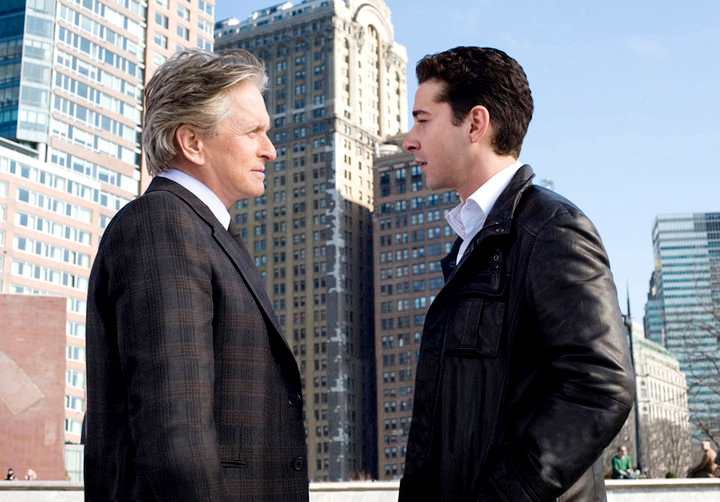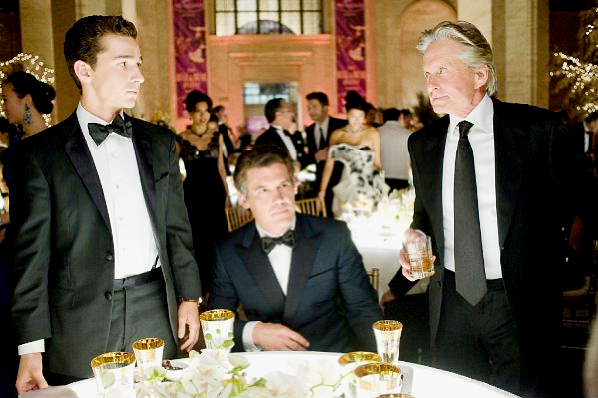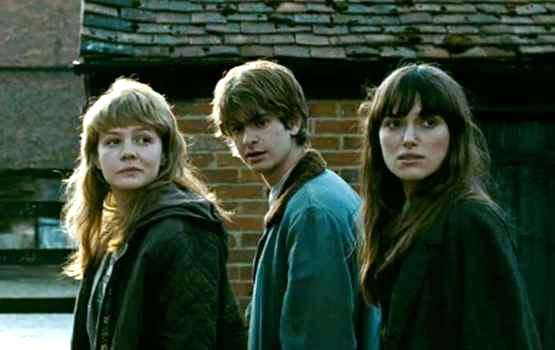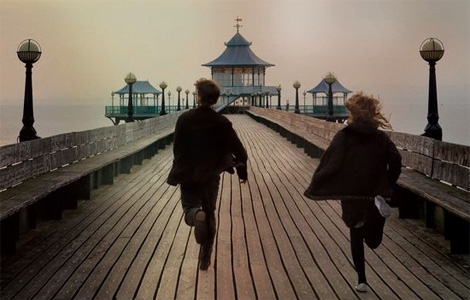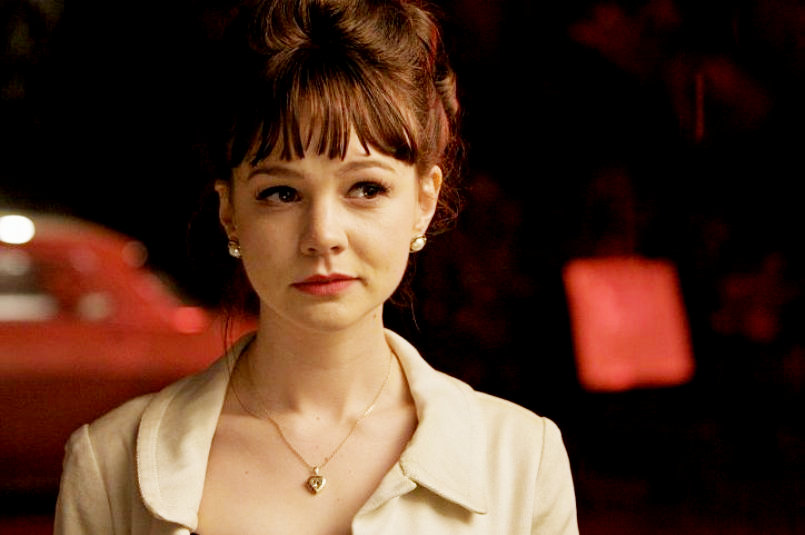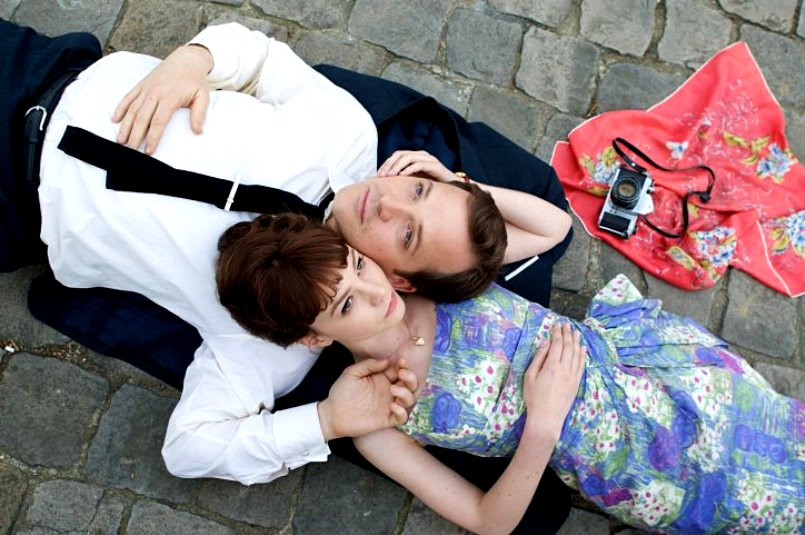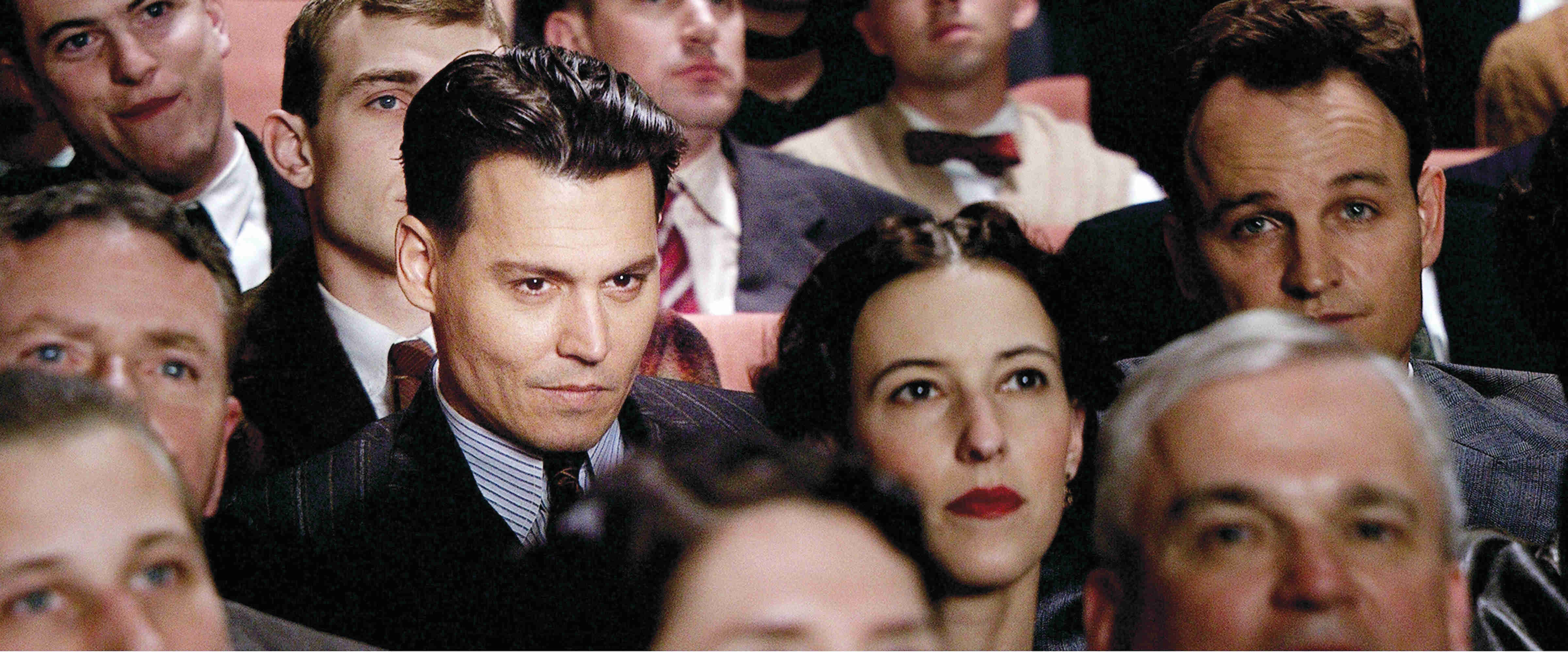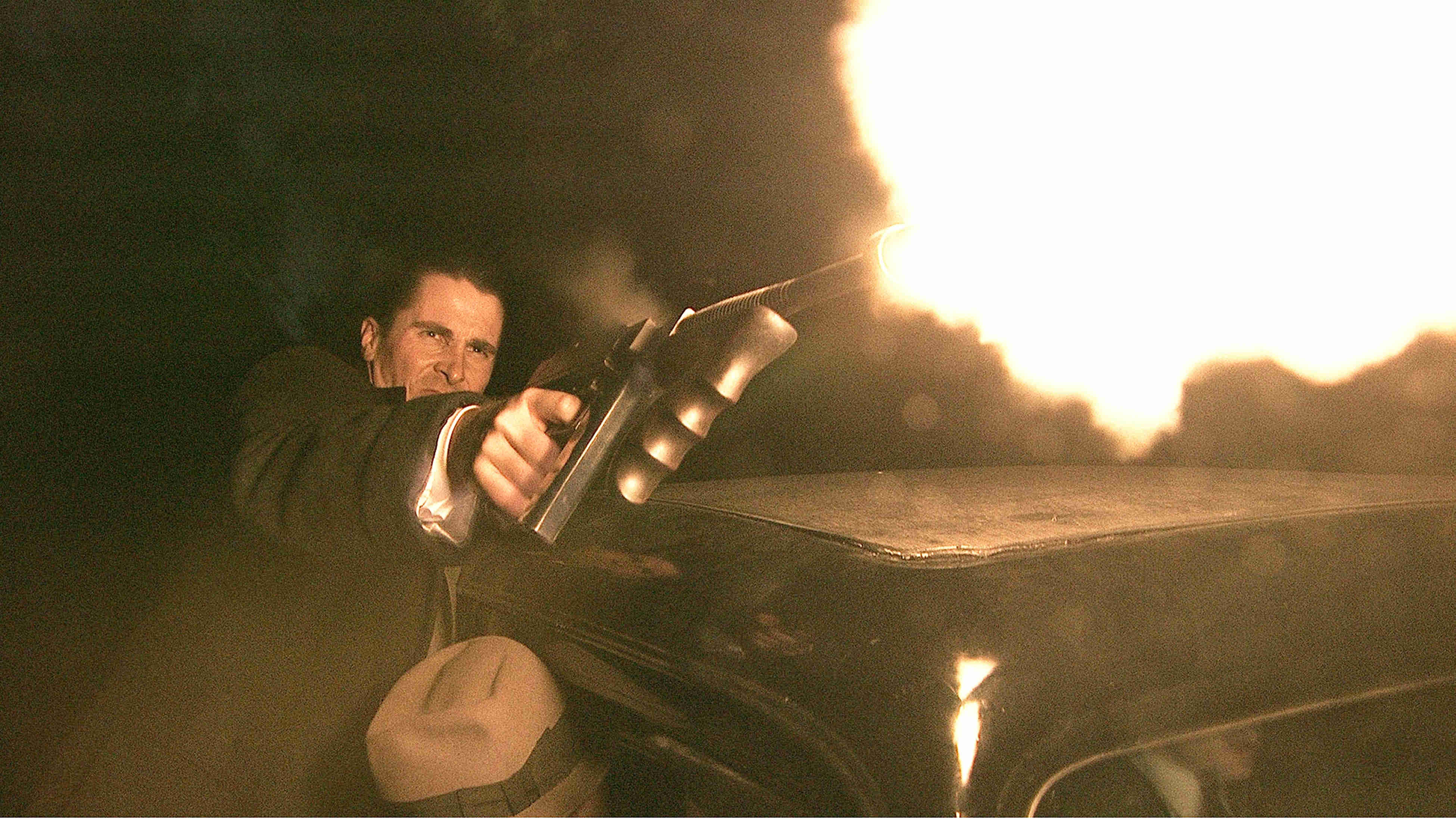Merry Christmas, everyone. As we’re at the halfway point of the big decade list — Pt. 1, Pt. 2 — now seems like a good time to uncork the usual end-of-year movie list. Think of it as a new-stuff sorbet before we move to the final fifty.
I should say before we start that there are a few movies I’ll very likely see from 2009 — most notably The Lovely Bones, A Single Man, and The Imaginarium of Dr. Parnassus — that aren’t included due to their limited release schedule — most don’t arrive around these parts until 2010. The better-than-expected Sherlock Holmes, which I saw yesterday and have not yet reviewed in full, is also not here, although I did think of slotting it in at #20 before the Victorian-era tazer and remote-controlled cyanide bomb showed up. And there are still a few other stragglers I wouldn’t mind catching at some point, most notably Invictus and The Messenger. But if any of these are really, really great, they’ll either get backdated in or show up in next year’s list, as per usual. So don’t worry — credit will get paid where due.
In the meantime, as has been the standard — and although the decade list has been working differently — we start at #1 and proceed from there. And without further ado, the…
Top 20 Films of 2009
[2000/2001/2002/2003/2004/2005/2006/2007/2008]
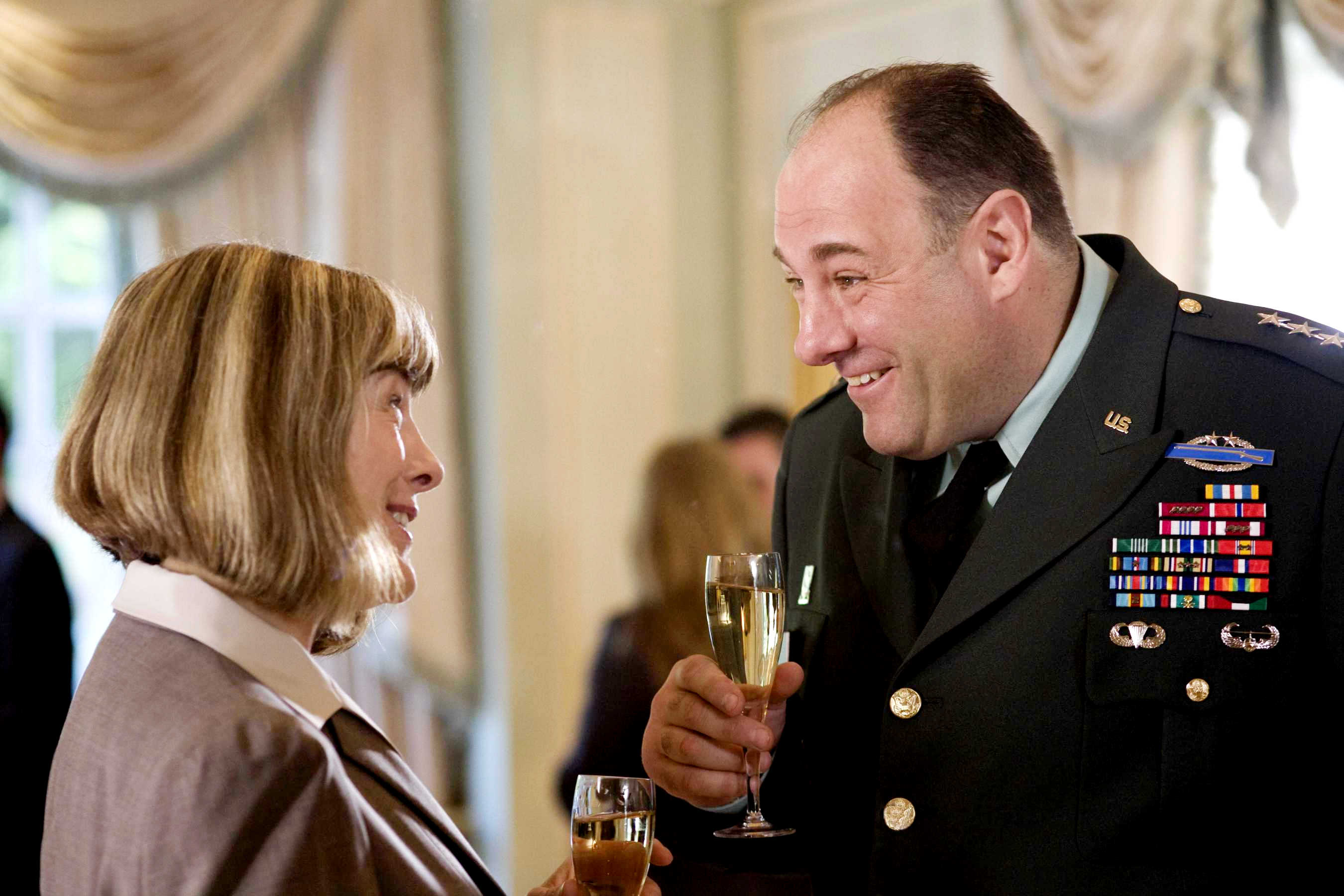
1. In the Loop: “Tobes, I don’t want to have to read you the Riot Act, but I am going to have to read you some extracts from the Riot Act, like: Section 1, Paragraph 1: Don’t leave your boss twisting in the wind and then burst in late, smelling like a pissed seaside donkey.” Even if I hadn’t moved back to DC this year for a ringside seat to the clusterfrak, Armando Ianucci’s In the Loop would’ve been at the top of my list. I’m not normally a huge laugher at movies, but this flick had me rolling.
Basically, In the Loop is Office Space for people in politics, and it’s a smart, wickedly funny entertainment. And like Judge’s film and The Big Lebowski, I expect it will enjoy a long, happy, and very quotable renaissance on DVD. If you find The Daily Show or Colbert Report at all enjoyable, this is a must-see. And, even if you don’t, well the choice Scottish swearing should get you through.
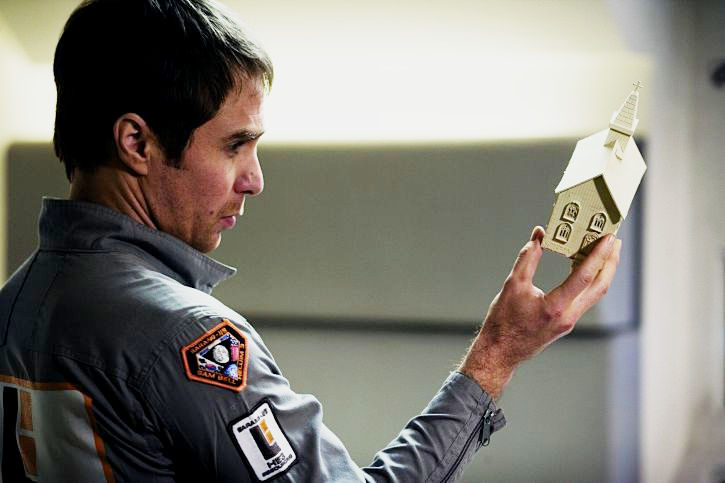
2. Moon: While Michael Bay, McG and their ilk tried to top each other with gimongous explosions this summer, Duncan Jones’ moody, low-key Moon just aimed to blow our minds. A throwback to the seventies big-think sci-fi that has fallen out of favor in the post-Star Wars-era, Moon‘s big special effect, other than Sam Rockwell, of course, was its clever ideas. And in a year of hit-or-miss (mostly miss) blockbusters, Rockwell’s quiet two-man show turned out to be the sci-fi extravaganza of 2009.
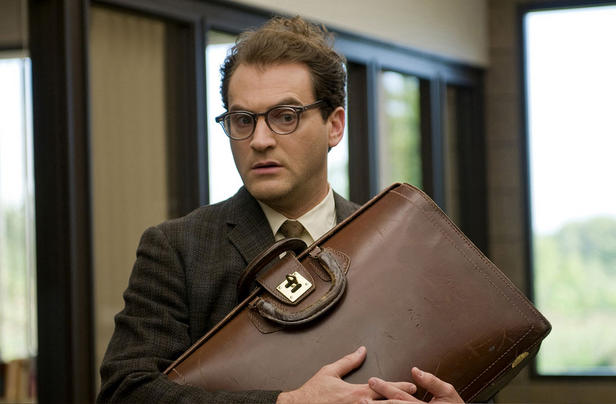
3. A Serious Man: Oy vey. This existential disquisition into wandering dybbuks, sixties Judaica, quantum mechanics, and Old Testament justice was yet another triumph for those devilishly talented brothers from Minnesota. The Job-like travails of Larry Gopnik introduced us to several colorful, Coenesque personages (Sy Ableman, Rabbi Nachtner) and offered vignettes (the Goy’s Teeth) and quotable philosophy (“Receive with simplicity everything that happens to you“) that cinephiles will ponder for awhile to come. The Coens abide.
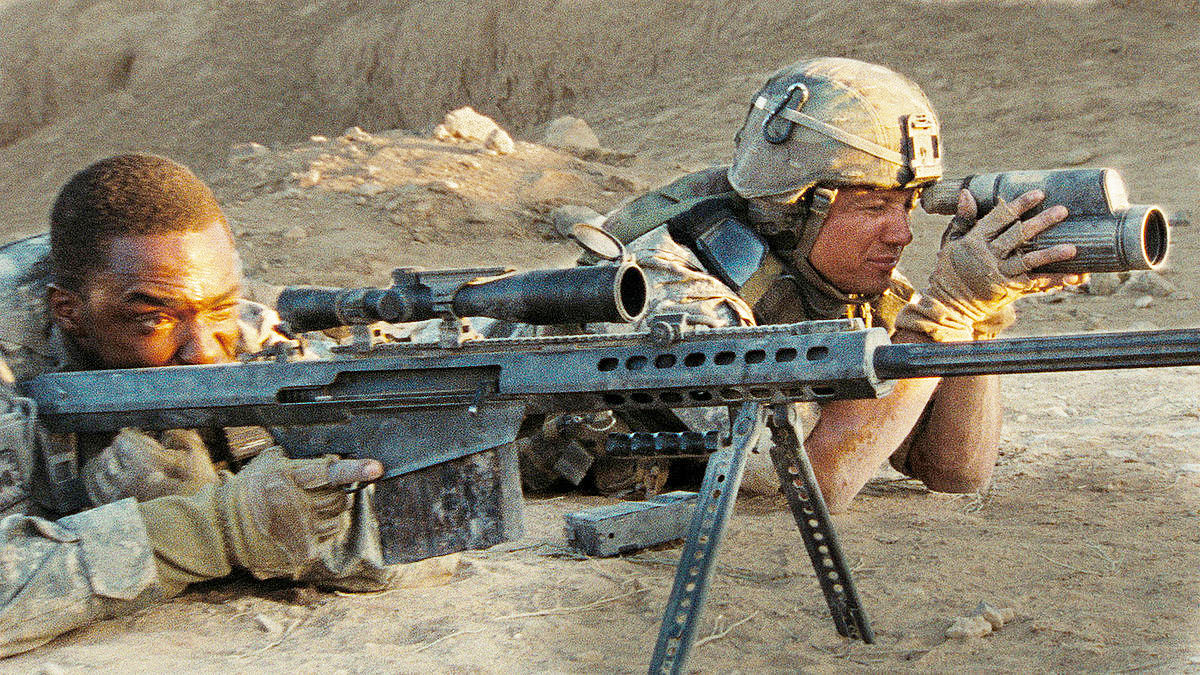
4. The Hurt Locker: Bombs away, and we’re not ok. Other than Modern Warfare 2 and Generation Kill, this immersive, nail-biting account of an IED team’s travails in the midst of the suck was the best pop culture simulator out there for feeling embedded in Iraq…and stuck at the wrong Baghdad street corner at just the wrong time. And with the tension ratcheting to uncomfortable levels in each of the ordnance disposal scenes, Kathryn Bigelow’s The Hurt Locker — sorry, King of the World — was the action movie of the year.

5. Coraline: In an auspicious year for both regular (see #10) and stop-motion (see #13) animation, Henry Selick’s adaptation of Neil Gaiman’s Coraline was the pick of the litter. It sorta got lost in the early-year shuffle, but Selick & Gaiman’s dark, twisted fairy tale delivered the goods, and hopefully it’ll find more life on DVD.
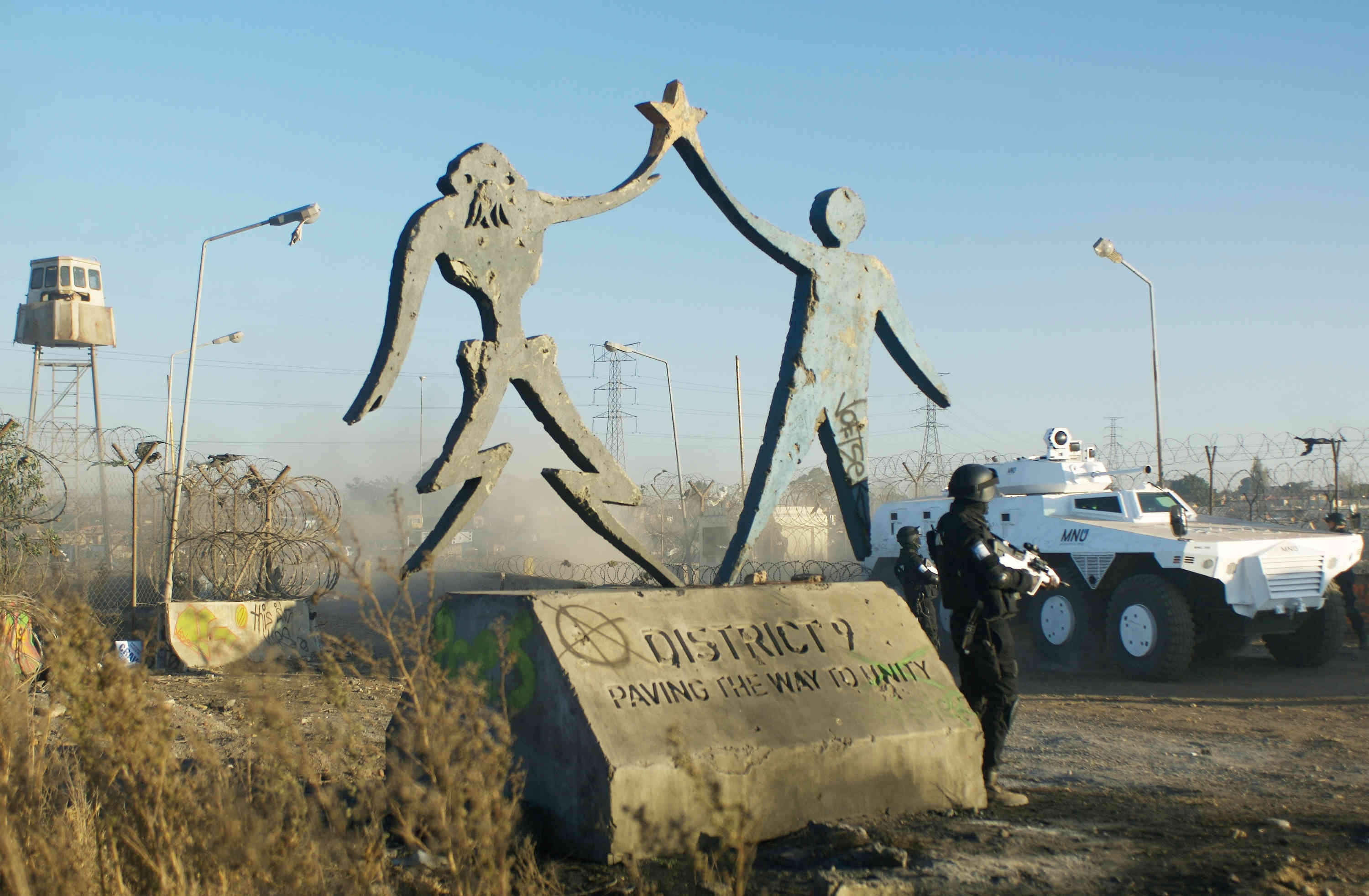
6. District 9: For those who find Moon a little too talky and slow, I direct you to Neil Blomkamp’s little (ok, $30 million) South African indie that could. Alien Nation meets Cry Freedom with healthy dollops of Cronenberg body horror and old-school Peter Jackson viscera-splatter, District 9 came out as more than the sum of its parts, and (with #8) was one of the most purely enjoyable films of the summer.
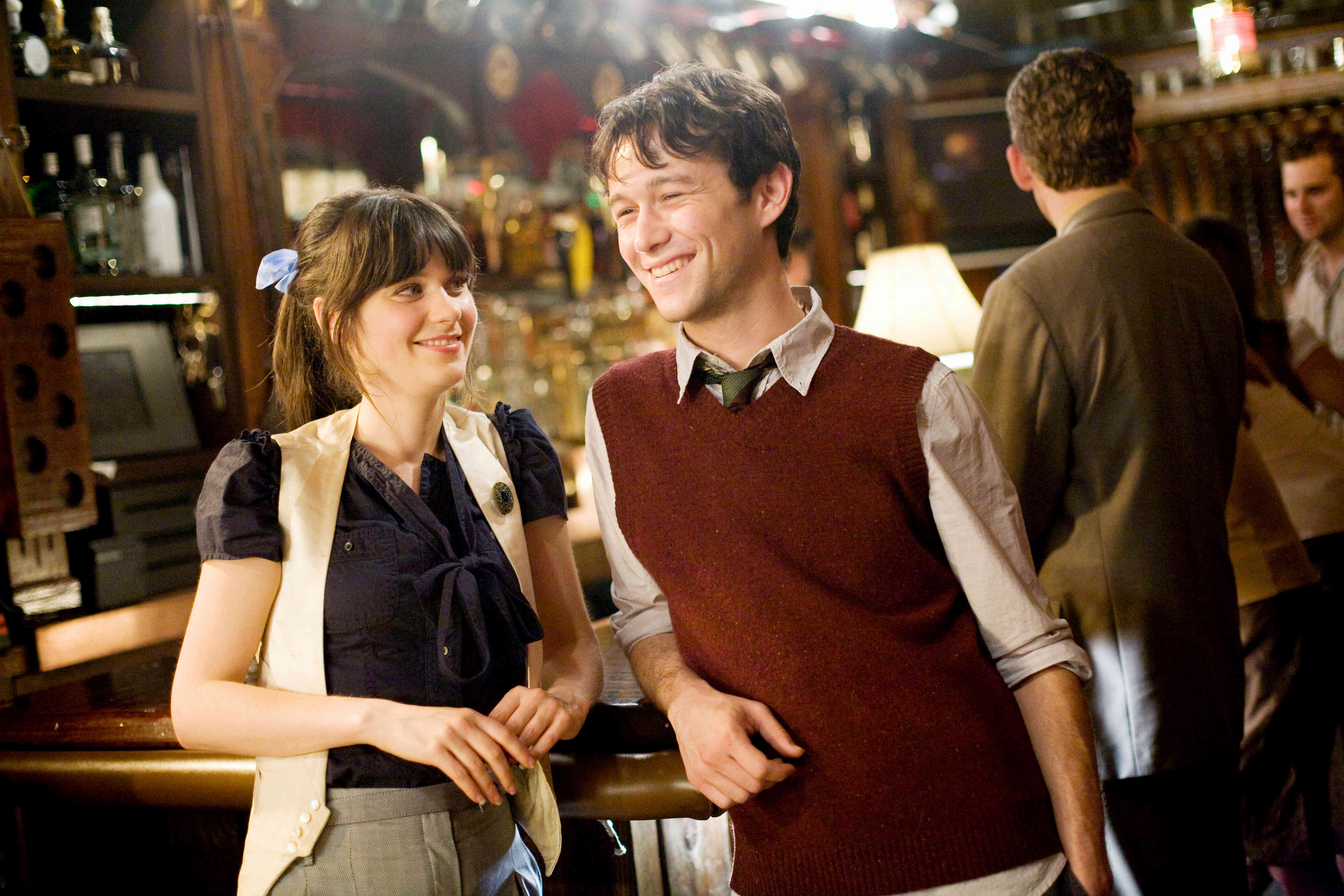
7. (500) Days of Summer: “This is a story of boy meets girl. The boy, Tom Hansen of Margate, New Jersey, grew up believing that he’d never truly be happy until the day he met The One. This belief stemmed from early exposure to sad British pop music and a total mis-reading of the movie ‘The Graduate’.” Speaking of said music, here’s a movie the early Elvis Costello would love. Sure, (500) Days is unabashedly for folks who’ve been on the wrong end of a break-up. But, even if it is ultimately Annie Hall-lite in a lot of ways, it had more truths to tell than most of the rom-coms out in any given year…combined.

8. Drag Me to Hell: Shaking off the Spidey 3 doldrums, Sam Raimi went back to his gross-out Evil Dead roots for this carnival concoction. Besides being easily the most explicitly anti-gypsy film since Borat, Drag Me to Hell was also, in its own way, as much of a Great Recession cautionary tale as Up in the Air. One hopes that when the Senate takes up financial services reform next year, our erstwhile reformers in that esteemed body will note what happened to Alison Lohman when she, against all better judgment, decided to do the bidding of the Banks.

9. Star Trek: There was admittedly a whole lotta stupid in J.J. Abrams’ Star Warsy revamp of the Star Trek franchise — Once exposed to the light, the movie’s basic premises completely fall apart. But, like the stomachache that accompanies eating too much candy, those regrets come later. In the moment, Star Trek was more fun than you can shake a stick at, and as solid and entertaining a franchise reboot as 2006’s Casino Royale. Let’s hope The Revenge of Khan or whatever it’s called turns out better than Quantum of Solace.
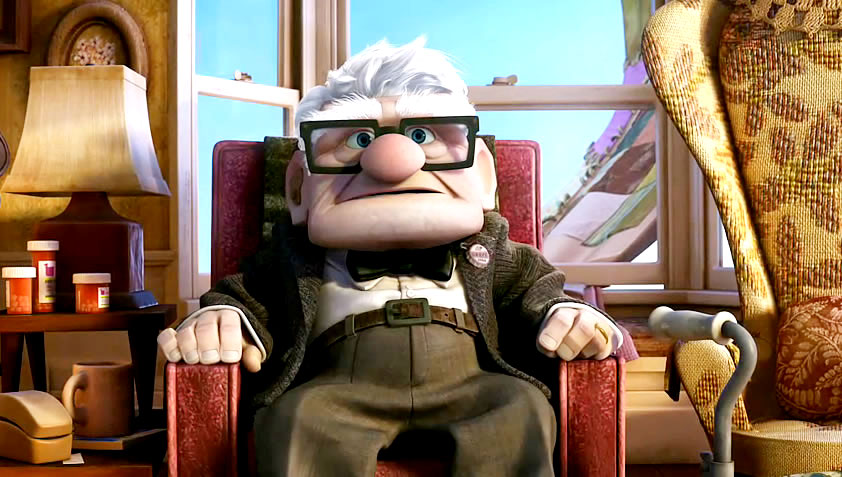
10. Up: If the movie were just the first ten-fifteen minutes, this might’ve been in the top five. But even more than WALL-E, the good stuff in Up is front-loaded. And, after the story of a lifetime ended a quarter hour in, I wasn’t much in the mood for talking dogs and big, funny birds (even birds named Kevin) anymore. Still, Pixar is Pixar, and Up carried their usual mark of quality.

11. The Damned United: Frost/Nixon for the futbol set, Tom Hooper’s ballad of Clough and Revie was a low-key character study that made up for an awkwardly-frontloaded bromance with another great performance by Michael Sheen and plenty of “Life in a Northern Town” local color to spare. You can practically smell the mud off the cleats in this one.

12. Duplicity: Perhaps I’m giving too many props to well-made breezy entertainments this year (see also Nos. 8 & 9). Nonetheless, Tony Gilroy’s Duplicity was a sleek espionage caper and a decently sexy love story that was all the more amusing because the stakes were so small. As it turns out, Clive Owen had just taken on evil corporations with a global reach a few weeks earlier in The International (a movie I caught on DVD, and which was most memorable for its Gunfight in the Guggenheim) — He’s more fun when he’s on the payroll.
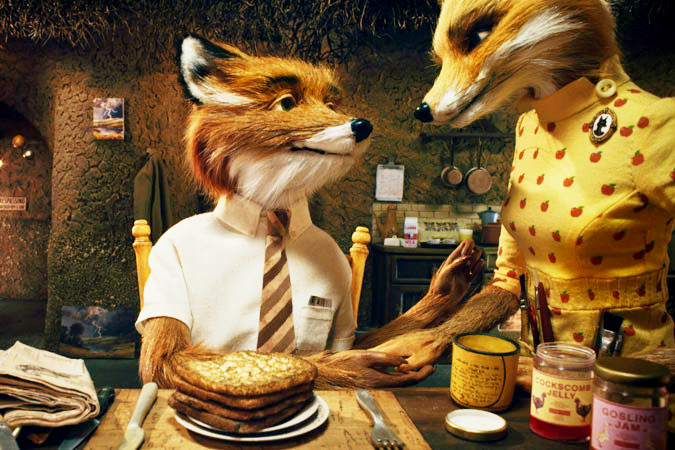
13. The Fantastic Mr. Fox: If you see one clever stop-motion adaptation of a sardonic children’s novel this year…well, see Coraline. Nonetheless, The Fantastic Mr. Fox was also one of the better entrants in the 2009 line-up. It was ultimately a little too Wes Anderson saccharine for my tastes, but, of course, your mileage may vary. And at least Fox didn’t wallow in the emo like, you know.
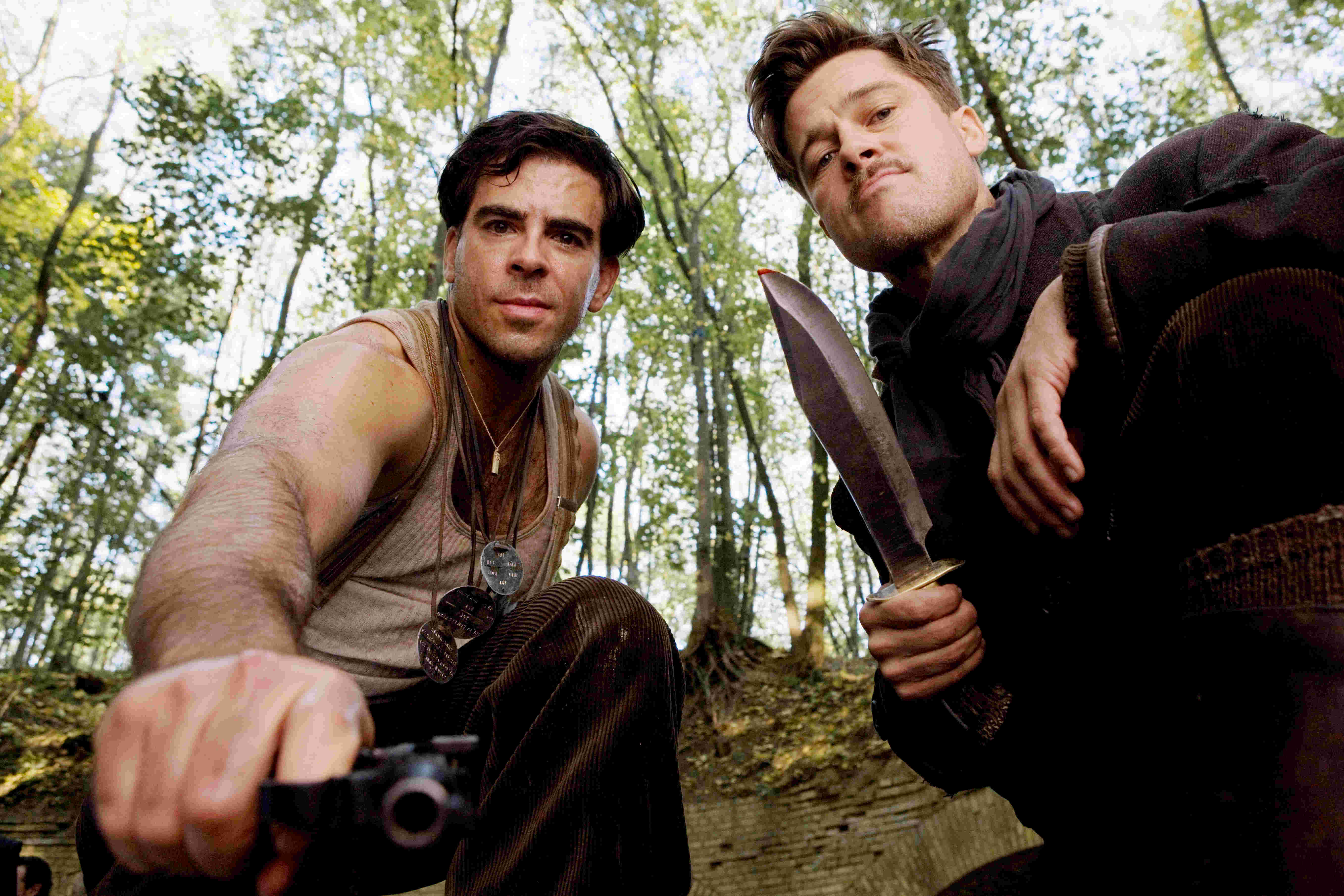
14. Inglourious Basterds: After a decade of languishing in the shallows, Quentin Tarantino found a bit of his old magic in this sprawling alternate history of WWII. Yes, it needed a good and ruthless editor, and some rather longish scenes don’t really work at all (I’m thinking mainly of Shoshanna’s lunch with Goebbels and Linda.) But at certain times — the basement cafe snafu, for example, or the memorable finale — Basterds is the best thing QT has done since Jackie Brown. Let’s hope he stays in form.
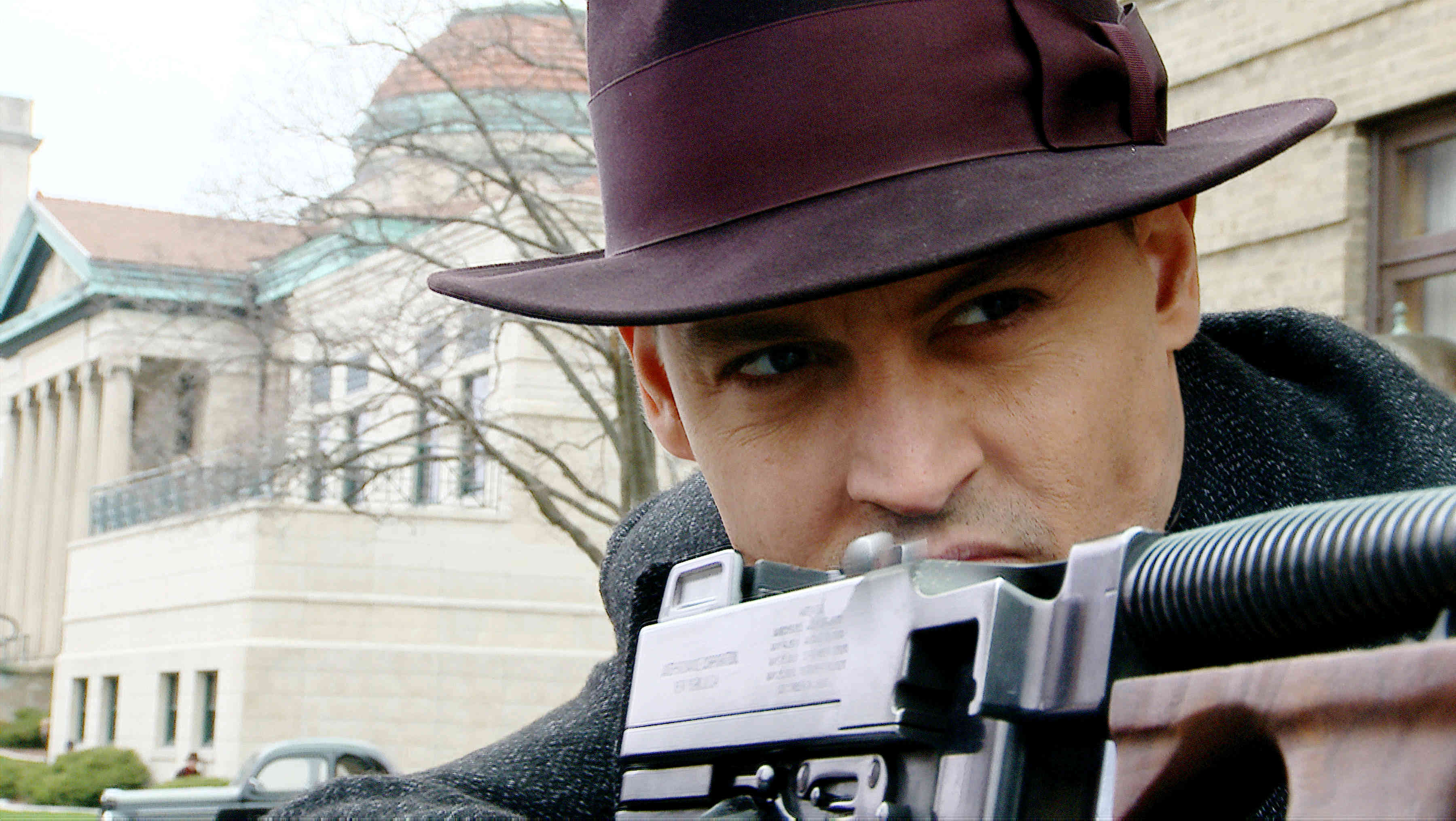
15. Public Enemies: Michael Mann’s high-def retelling of The Last Days of Dillinger was a strange one, alright. Like Basterds, it was long and languid and sometimes seemed to move without purpose. But, like Mann’s last grainy-digital foray into tales of manly men and the women they love, Miami Vice, Public Enemies has stuck with me ever since. Say what you will about the hi-def video aesthetic, it somehow seems to match Mann’s haunted, Hemingwayesque sense of poetry.
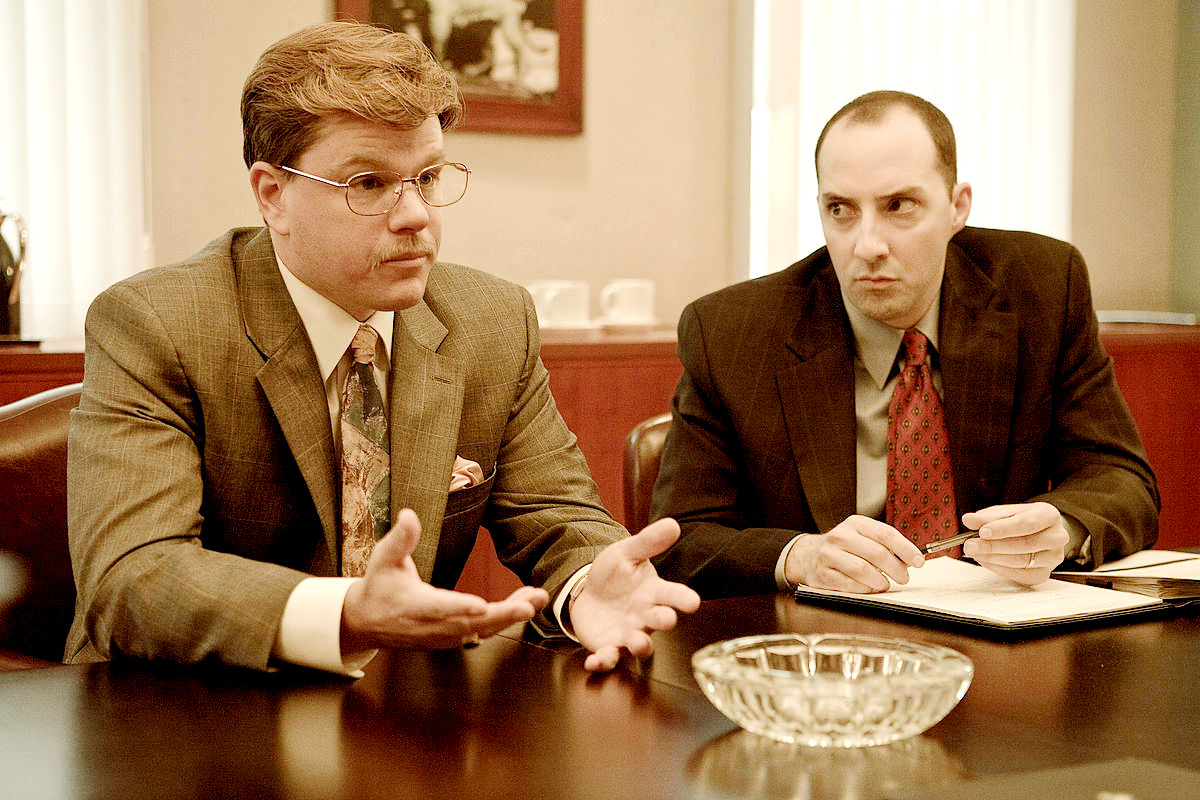
16. The Informant!: The tragedy of The Insider retold as farce, The Informant!, like many of Steven Soderbergh’s films, was experimental in a lot of ways. Some things worked (the ADM-buttery sheen); Others didn’t (the distractingly peppy Hamlisch score); Others still were hit-or-miss (the in-head bipolar voiceover). Nonetheless, The Informant! is mostly a success, and it’s good to see Soderbergh out there trying new things — I wish I’d gotten around to catching The Girlfriend Experience. (Ahem, the movie, that is. Sheesh, some people.)
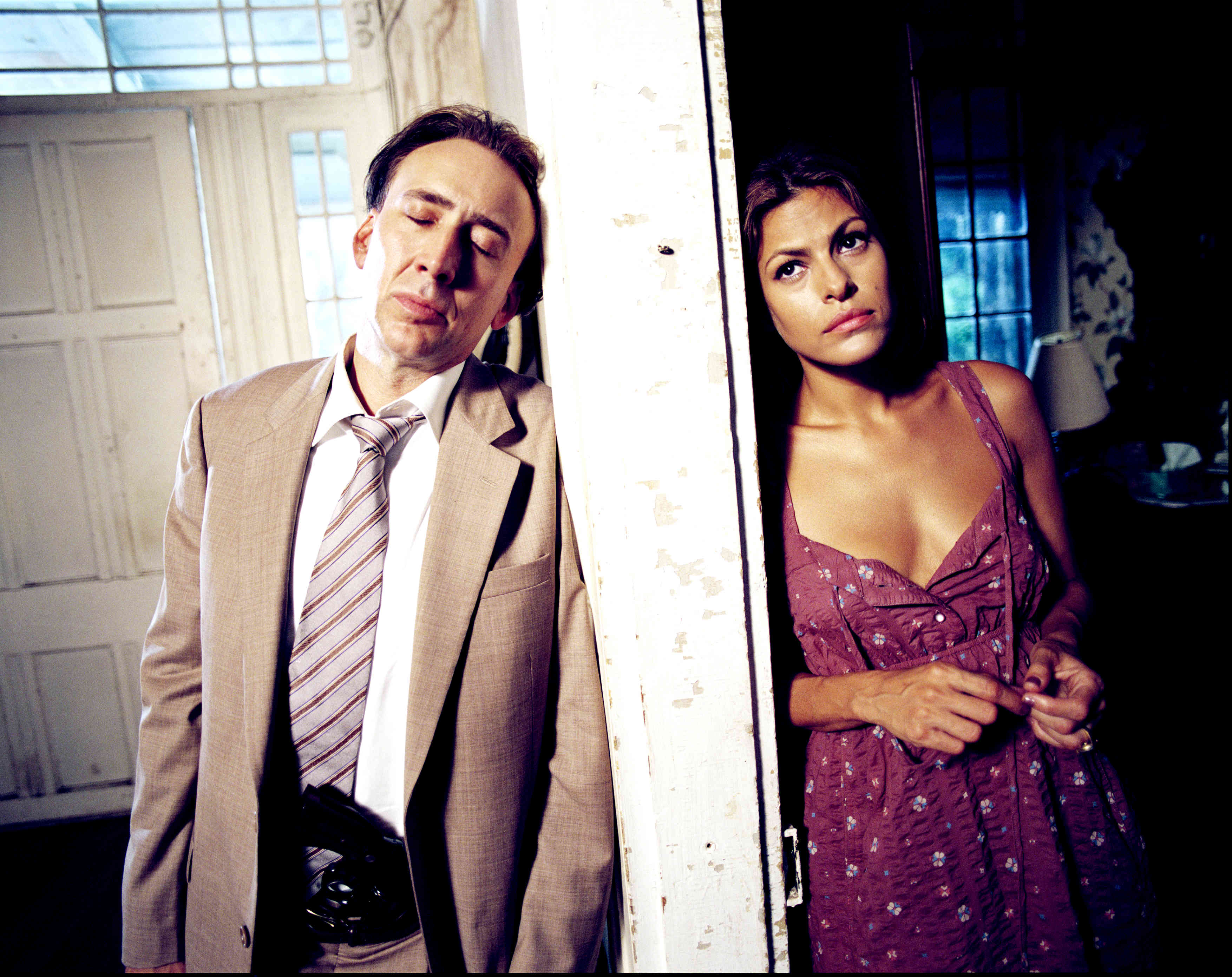
17. Bad Lieutenant: Port of Call New Orleans: I had definite doubts going in, but Werner Herzog’s Grand Theft Auto: New Orleans turned out to be a surprisingly fun gonzo trip. After years of hanging with the Kinski, good ole Werner sure knows his way around the crazy, and by pairing Nicholas Cage on a savage burn with hyperreal iguanas, voodoo breakdancers, and the like, he’s done Abel Ferrara’s Gloomy Gus version of this tale one better. There’s no Catholic angst for this Lieutenant — just reveling in sordidness…but then again, isn’t that the whole point of Carnival?
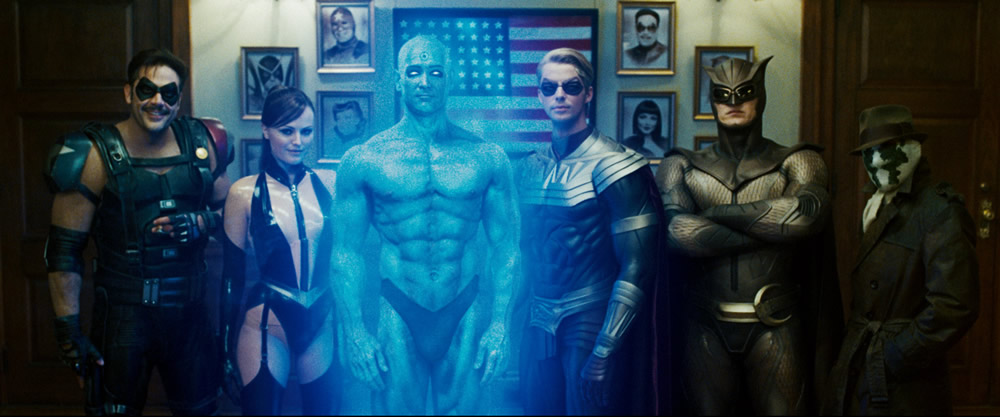
18. Watchmen: “At midnight, all the agents and the superhuman crews go and round up everyone who knows more than they do.” True, Zack Snyder’s attempt to recreate the Alan Moore graphic novel on film is flawed in a lot of ways. (The longer DVD version smooths out some of these issues while introducing others.) And I still wish the project had stayed in Paul Greengrass’ hands. But, give credit where it’s due — For all its many problems (most notably the fratboy-indulgences into “cool” violence), Snyder’s Watchmen got a lot of things right, from Dr. Manhattan sulking on Mars to Jackie Earle Haley’s turn as Rorschach. Snyder couldn’t match the degree of difficulty involved in the end, but Watchmen was still a worthy attempt.
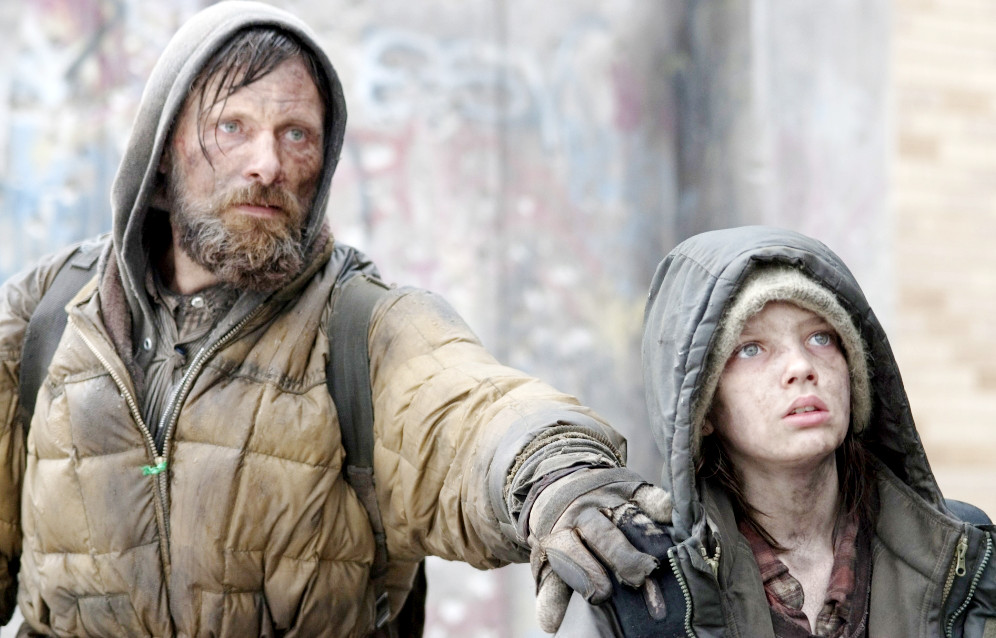
19. The Road: In the Future, There Will Be Cannibals: John Hillcoat’s film version of Cormac McCarthy’s dabbling in the apocalyptic form definitely captured the resonances of the book. And this is a quality production through and through, with solid performances by Viggo, the kid, Charlize Theron, and all of the HBO All-Stars (with particularly big ups to Robert Duvall.) Unfortunately, I didn’t think much of the book either, and in its monochromatic grimness, The Road never seems as memorable as Hillcoat’s earlier film, The Proposition. All work and no play makes Hobo Viggo somethin’ somethin’.
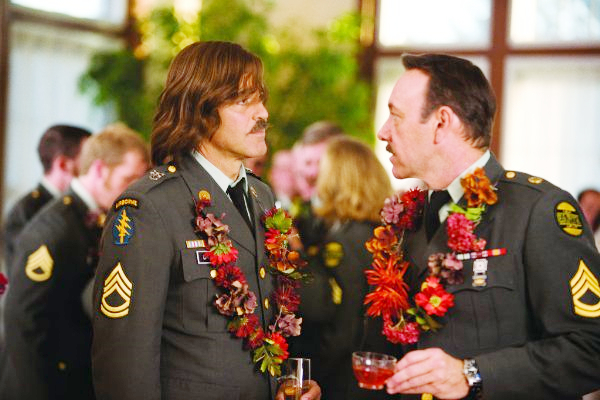
20. The Men Who Stare at Goats: I’m sure a lot of lists would’ve found room for Avatar or Up in the Air in their top twenty, and both have their merits (even if Avatar‘s are almost completely technical.) But if Avatar was too flat and Air too glib, The Men Who Stare at Goats was a frothy excursion that delivered on basically the terms it promised at the onset. Ok, there’s not much there there, but sometimes a couple of likable actors having an extended goof will go farther than Big, Oscar-Worthy Messages and World-Beating Tech. Hmmm, if you think about it, the “sparkly eye” technique probably would’ve gone over better with the Na’vi than all those Aliens-loaned cargo-loaders anyway. Score one for the First Earth Battalion.
Most Disappointing: Where the Wild Things Are, Terminator: Salvation
Worth a Rental: An Education, Avatar, Cold Souls, Eden (2006), Harry Potter and the Half-Blood Prince, The International, Paranormal Activity, Sherlock Holmes, A Single Man, Taken, Up in the Air, Zombieland
Don’t Bother: 2012, The Box, The Brothers Bloom, Extract, A Girl Cut in Two (2006), The Hangover, Invictus, Jennifer’s Body, State of Play, The Tiger’s Tail (2006), Whip It, World’s Greatest Dad
Best Actor: Sam Rockwell, Moon; Jeremy Renner, The Hurt Locker
Best Actress: Carey Mulligan, An Education
Best Supporting Actor: Christoph Waltz, Inglourious Basterds; Robert Duvall, The Road
Best Supporting Actress: Marion Cotillard, Public Enemies; Melanie Laurent, Inglourious Basterds
Unseen: 9, Nine, Adventureland, Angels & Demons, Amelia, Antichrist, Armored, Astro Boy, Black Dynamite, Blood: The Last Vampire, Bright Star, Brothers, Bruno, Capitalism: A Love Story, Cirque du Freak: The Vampire’s Assistant, Crank: High Voltage, Crossing Over, Everybody’s Fine, Funny People, Gentlemen Broncos, GI Joe, The Girlfriend Experience, Good Hair, The Education of Charlie Banks, The Great Buck Howard, Hunger, The Imaginarium of Doctor Parnassus, The Invention of Lying, It’s Complicated, Julie & Julia, Land of the Lost, The Limits of Control, , The Lovely Bones, I Love You Man, Me and Orson Welles, The Messenger, New York I Love You, Notorious, Observe & Report, Orphan, Pandorum, Pirate Radio, Ponyo, Precious, The Private Lives of Pippa Lee, The Proposal, Push, The Soloist, Surrogates, The Taking of Pelham1-2-3, Taking Woodstock, Thirst, The Time Traveler’s Wife, Transformers: Revenge of the Fallen, The Twilight Saga: New Moon, Two Lovers, The Ugly Truth, Whatever Works, X-Men Origins: Wolverine, Year One
A Good Year For:
- The Apocalypse (2012, Zombieland, The Road)
- Demons (A Serious Man, Drag Me to Hell, Jennifer’s Body, Paranormal Activity)
- George Clooney (The Men Who Stare at Goats, The Fantastic Mr. Fox, Up in the Air)
- Going Undercover to Play Both Sides (Bad Lieutenant: Port of Call New Orleans, Duplicity, The Informant!)
- Guy Pearce Cameos (The Road, The Hurt Locker)
- Hipsters with Unresolved Childhood Issues (The Fantastic Mr. Fox, Where the Wild Things Are)
- “The Jews” (Inglourious Basterds, A Serious Man)
- Matthew Goode (Watchmen, A Single Man)
- Melanie Lynskey (Up in the Air, The Informant!)
- Stop-Motion (Coraline, The Fantastic Mr. Fox)
A Bad Year For:
- Goats (Drag Me to Hell, The Men Who Stare at Goats)
- Robots from the Future (Transformers 2, Terminator: Salvation)
- Pithy Movie Titles: (Bad Lieutenant: Port of Call New Orleans, Transformers: Revenge of the Fallen, X-Men Origins: Wolverine)
- Summer blockbusters: (GI Joe, Terminator: Salvation, Transformers 2, Wolverine)
2010: Alice in Wonderland, All Good Things, The American, The A-Team, The Book of Eli, Brooklyn’s Finest, Clash of the Titans, A Couple of Dicks, Daybreakers, The Expendables, Greenberg, The Green Hornet, Green Zone, Harry Potter and the Deathly Hallows Pt. 1, I Love You Phillip Morris, Inception, Iron Man 2, Jonah Hex, Kick-Ass, Knight & Day, The Last Airbender, Legion, The Losers, Percy Jackson & The Olympians: The Lightning Thief, Morning Glory, Predators, Prince of Persia: The Sands of Time, Red, Robin Hood, Salt, Season of the Witch, Shanghai, Shutter Island, The Sorcerer’s Apprentice, Toy Story 3, The Voyage of the Dawn Treader, Wall Street 2: Money Never Sleeps, The Wolf Man, Youth in Revolt, more needless ’80s remakes than you can shake a stick at. (Footloose, The Karate Kid, A Nightmare on Elm Street, Red Dawn), and…

TRON 2. 2010, y’all. It’s the future, and no mistake.
